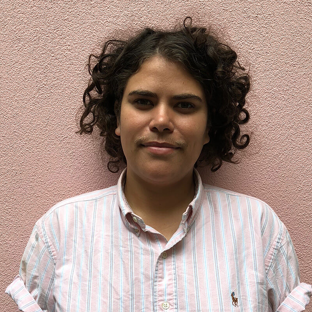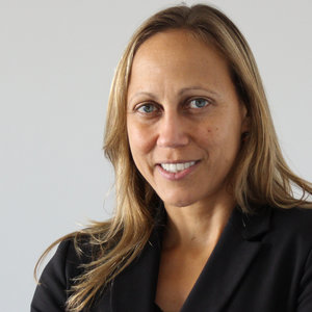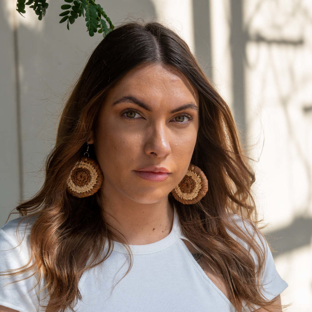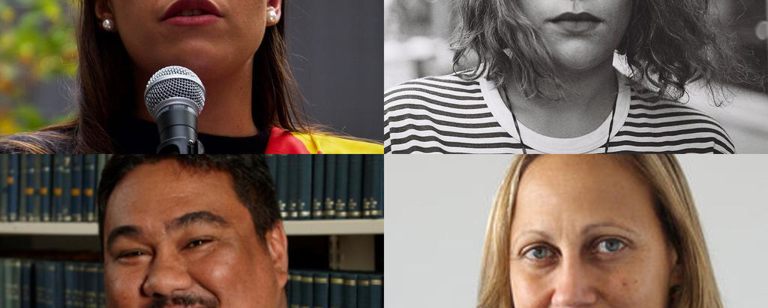This event is now fully booked. We have reserved spaces for any First Nations people who missed out on a booking – please email ticketing@wheelercentre.com or call 03 9094 7800 to request one.
Almost 30 years ago, the Royal Commission into Aboriginal Deaths in Custody recommended the abolition of public drunkenness as an offence. A subsequent inquiry in Victoria in 2001 also recommended decriminalisation. So, why have successive governments failed to act?
The Victorian Aboriginal Legal Service estimates about a quarter of the people arrested for public drunkenness each day are Aboriginal, even though just 0.8 per cent of Victoria's population is Indigenous.
Following the death in police custody of Yorta Yorta woman Tanya Day in April 2017, there’s been a renewed and energetic campaign for decriminalisation led by her family. In this conversation, our panellists will discuss the reasons for the disastrous long-standing impasse on the issue and share their thoughts on the momentum behind the new push for reform.
Presented in partnership with Liberty Victoria.
Featuring

Nayuka Gorrie
Eddie Cubillo
Eddie Cubillo is an Aboriginal man with strong family links throughout the Northern Territory. His mother is of Larrakia/Wadjigan descent, and his father is Central Arrente. Eddie’s family has experienced the intergenerational effects of the policy of forced removal of children of mixed descent from their family and country.
In 2001 he obtained a Bachelor of Laws Degree and in 2002 he was admitted as a Barrister and Solicitor of the Supreme Court of the Northern Territory. In 2009 Eddie completed a Masters of Laws (International Law and International Relations) at Flinders University.
Eddie has over 20 years’ experience working at the grass roots of Aboriginal affairs. Eddie started his career working as a solicitor with the Northern Territory Legal Aid Commission, and went on to work as a solicitor for the Northern Territory Government. Eddie has also served as Chairperson of both the North Australian Aboriginal Justice Agency (NAAJA) and the Aboriginal Justice Advisory Committee (NT).
In 2010 Eddie was appointed the Anti-Discrimination Commissioner of the Northern Territory, and following his term he took on the role of Executive Officer with NATSILS in October 2012. As the Executive Officer he championed the rights of Indigenous Australians in a legal context. In 2015 Eddie was announced as the National Indigenous Legal Professional of the Year.

Shahleena Musk
Shahleena Musk joined the Human Rights Law Centre team in February 2017, working in the Indigenous Rights Unit. She is an Aboriginal lawyer descended from the Larrakia people of Darwin. She was the first Aboriginal person to graduate from the then Northern Territory University (now Charles Darwin University) and to be admitted to the Supreme Court of the Northern Territory.
Shahleena worked as a Crown Prosecutor for the Director of Public Prosecutions in both the Northern Territory (1998–2001) and Western Australia (2006–7). For over a decade she worked with the Aboriginal Legal Services in WA and the Top End of the NT, including roles as a criminal solicitor, youth lawyer, Practice Manager and Deputy Manager.
In 2013 Shahleena was instrumental in the creation of NAAJA’s youth team and took on the role of the Senior Youth Justice Lawyer, leading a team of three lawyers, an Indigenous Youth Justice Worker and a legal secretary. In 2014, under Shahleena’s leadership, NAAJA’s youth justice team was a finalist in the National Children’s Law Awards. In 2015, she was jointly awarded the Fitzgerald Youth Award for her innovative and holistic approaches to working with Aboriginal youth involved in the criminal justice system.
Shahleena has been a strategic advocate, informing and addressing the courts, government service providers and other agencies of the underlying causes of the over-representation of Indigenous children in the criminal justice system. As a senior lawyer with NAAJA and a member of their management team, Shahleena provided significant input into broader policy work and represented NAAJA externally in meetings with government and community stakeholders.

Apryl Day
Apryl Day is a proud Yorta Yorta, Wemba Wemba and Barapa Barapa woman. She is a community organiser and campaigner, and a member of both WAR VIC and Pay the Rent. She is the daughter of Tanya Day – a proud Yorta Yorta ...
